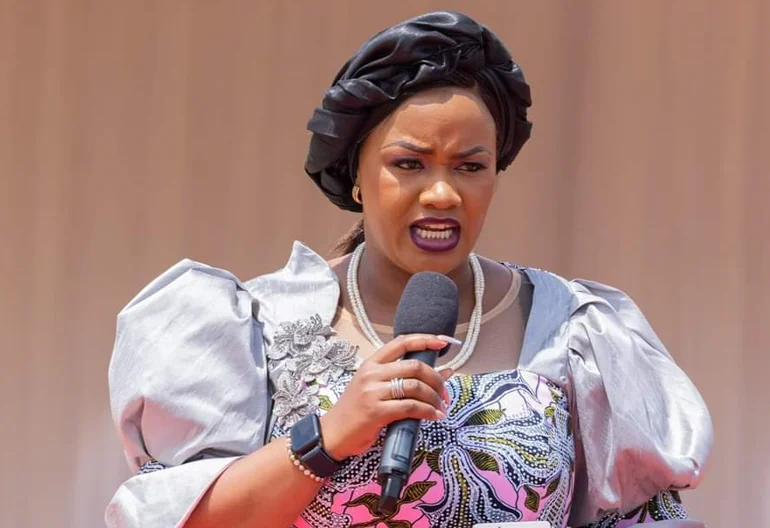Kenya and Burundi sign 7 MoUs to boost cooperation across key sectors
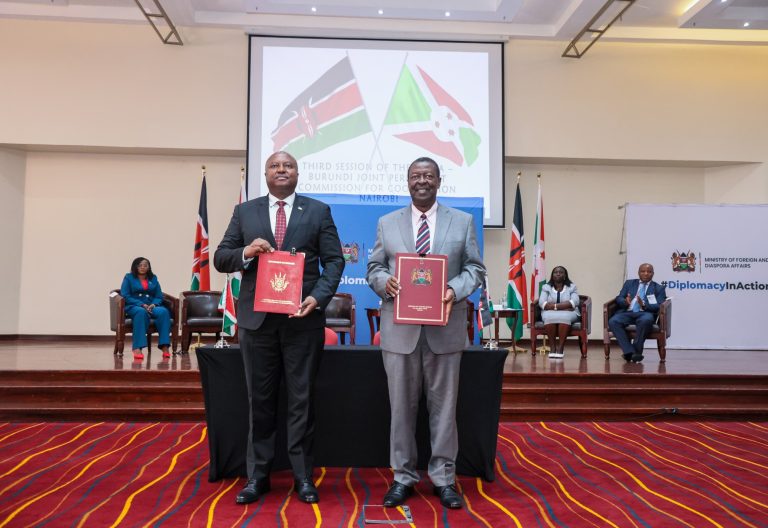
Kenya and Burundi have signed seven memoranda of understanding (MoUs) to deepen cooperation across critical sectors, including trade, mining, immigration, and gender development.
The agreements were signed during the 3rd Session of the Joint Permanent Commission for Cooperation (JPCC), held in Nairobi from April 28 to 30, 2025.
A joint communiqué posted by Foreign and Diaspora Affairs Cabinet Secretary Musalia Mudavadi on his X account on April 30, 2025, confirmed the conclusion of the talks.
According to the communiqué, the session was co-chaired by Mudavadi and Burundi’s Minister of Foreign Affairs and Development Cooperation, Ambassador Albert Shingiro.
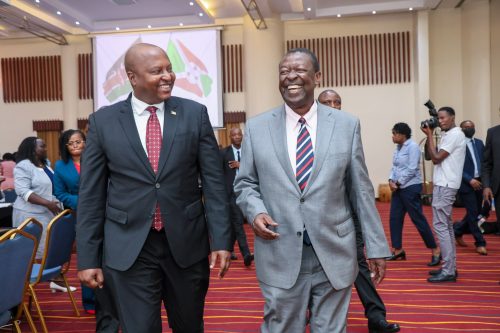
Both delegations comprised high-ranking officials from ministries covering foreign affairs, defence, agriculture, education, health, public service, and other strategic sectors.
“The Kenyan delegation was led by Musalia Mudavadi and was accompanied by Ms Hanna Wendot Cheptumo, Cabinet Secretary, Ministry of Gender, Culture, the Arts and Heritage…The Burundian delegation was led by Ambassador Albert Shingiro, Minister of Foreign Affairs and Development Cooperation,” the statement reads in part.
MOUs signed
Among the seven agreements were MoUs on cooperation in mining, correctional services, immigration, gender and women empowerment, public administration training, investment promotion, and private sector collaboration.
Notable signings included agreements between the Kenya School of Government and Burundi’s State Academy of Administration, between the Kenya Investment Authority and the Burundi Development Agency, and between the Kenya National Chamber of Commerce and Industry (KNCCI) and Burundi’s Federal Chamber of Commerce and Industry (CFCIB).
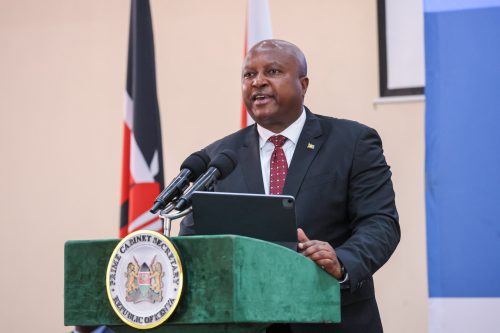
“During the JPCC, the two countries concluded and signed the following seven (7) instruments of bilateral cooperation,” the communiqué noted, listing each MoU by sector.
Bilateral diplomacy
Additionally, during the session, Mudavadi and Shingiro reaffirmed their commitment to strengthening bilateral ties across diplomacy, defence, infrastructure, education, and tourism.
“To achieve the aforementioned, the two Ministers committed to continue working together through exchange of information and best practices,” the statement said.
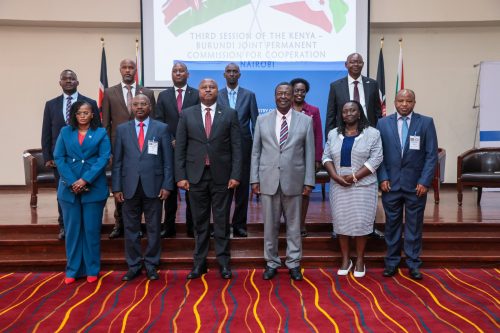
The two sides also stressed the need to revive regular political consultations between their foreign affairs ministries to enhance coordination on regional and global matters, as well as to monitor the implementation of JPCC outcomes.
“The two Ministers noted the need for reviving regular political consultations. This will facilitate and enhance the regular exchange of views on regional and global matters, as well as follow up on the outcomes of the JPCC,” the joint communiqué noted.
On trade, the ministers emphasised the role of economic cooperation as a catalyst for growth and development, calling upon private sectors in both countries to increase engagement and leverage business-friendly policies.
“This will ensure greater participation in trade, growth of industrial and technological capacity, job creation and achievement of sustainable development for the two countries,” the statement added.
Regional and global cooperation
The JPCC session also addressed regional peace and integration efforts, particularly within the Great Lakes Region, and reaffirmed both nations’ support for the East African Community (EAC), COMESA, and the African Union’s Agenda 2063.
“On international cooperation, the Ministers underlined the need for continuing consultations to build partnerships in multilateral fora to ensure the renaissance of Africa as encapsulated in Agenda 2063: ‘The Africa We Want’,” the statement said.
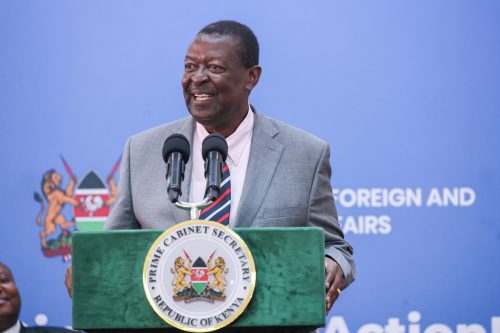
They also called for reforms within the African Union and other international bodies to make them more responsive to the geopolitical realities of Africa.
“The fourth Session of the JPCC will be held in Bujumbura, Burundi in 2027 on dates to be mutually agreed through diplomatic channels,” the communique noted.











